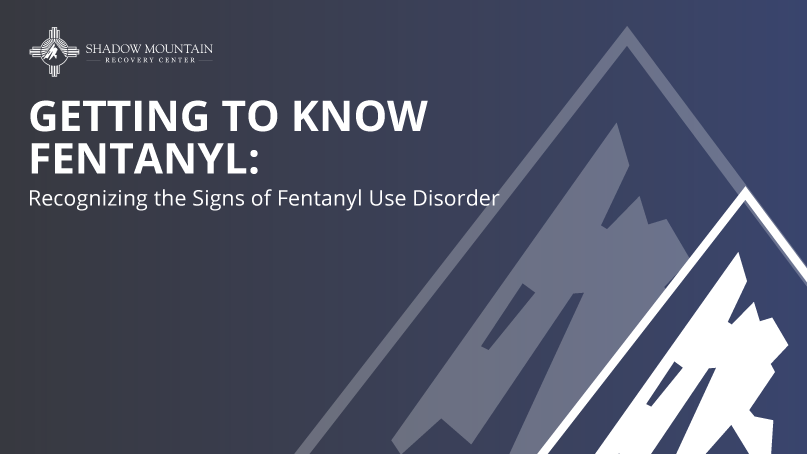Signs of Fentanyl Addiction
In recent years, fentanyl and other synthetic opioids are reportedly the most common cause of overdose-related deaths. In the US alone, over 150 people die from synthetic opioid overdoses daily, and fentanyl is largely responsible for the uptick in overdose deaths reported in recent years. Fentanyl addiction can be difficult to pinpoint because, many times, fentanyl is mixed in with other illicit substances. That said, understanding fentanyl addiction and knowing how to recognize the signs of fentanyl use disorders can be the difference between life and death for those affected by this highly addictive substance. When recognized early, those struggling with fentanyl can get the treatment they need, whether fentanyl overdose treatment, detox, or outpatient care.
Signs of Fentanyl Use Disorder on the Body and Mind
The effects of fentanyl affect more than one part of the body or mind. When a person takes fentanyl, the drug affects them on a behavioral, psychological, and physical level. It is important to consider all of these factors when determining whether somebody is struggling with a fentanyl addiction.
Behavioral Signs of Fentanyl Use
Many behavioral changes accompany fentanyl use disorder and can manifest differently from person to person. However, as a person develops a fentanyl addiction, often the first thing noticed by those around them is a slipping of their daily habits, routines, and appearance. Fentanyl is an incredibly potent opioid, and while it is possible to hide a fentanyl addiction for a while, it becomes increasingly difficult with time. You may notice that a person with a fentanyl addiction stops participating in their favorite activities, sits out of social gatherings, or even stops caring for their hygiene and appearance.
Some of the side effects of fentanyl cause by its addiction include withdrawn, exhibit mood swings, become lethargic, sleepy, or dazed, and sometimes even take more risks than they would have otherwise. While many of these behaviors can be off-putting, it is important to understand that those struggling with fentanyl use disorder probably don’t like their behaviors any more than you do and could use a helping hand.
Psychological Signs of Fentanyl Use
Fentanyl is a synthetic opioid and it functions in the same way that natural opioids do. By flooding the brain with dopamine, fentanyl can induce feelings of euphoria, intense relaxation, and pleasure. However, long-term fentanyl use and long-term dopamine exposure damage the brain and can induce psychosis, paranoia, isolation, delusions, and personality changes. Often these psychological changes are extremely noticeable and can result in behavioral changes in the person using.
Physical Signs of Fentanyl Use
Fentanyl affects the body on a physical level. Some physical symptoms of fentanyl use are constricted pupils, drowsiness, motor problems, cognitive issues, slurred speech, and unconsciousness. A person’s sudden unkempt appearance can also be a physical sign that something is wrong and that they may be dealing with a substance use problem.
Drug-Seeking Behavior
As with most substance use disorders, a fentanyl addiction is often accompanied by drug-seeking behaviors. Although drug-seeking behavior does not have a formal definition, the term refers to any behaviors with the end goal of obtaining drugs. Often these behaviors are manipulative, aggressive, and inappropriate and vary dramatically from person to person. For some people, drug-seeking behavior looks like persistently asking for money, complaining of withdrawals, or guilting the people around them. For others, it can look like the exaggeration of medical issues to receive prescriptions, stealing for money, or even engaging in risky behaviors to get drugs.
While drug-seeking behavior is problematic and is counter to the goals of recovery, it is important to recognize that these behaviors stem from the addiction. It should also be noted that you should never discount medical issues at face value for drug-seeking behaviors. People should always take medical concerns seriously until confirmed otherwise by professionals.

Withdrawal Symptoms
When a person with a fentanyl addiction stops or cannot continue taking fentanyl, they will more than likely go into withdrawal. Withdrawal is the process of a substance leaving the body, and several distinct symptoms often accompany it. Some of the most common symptoms are:
- nausea
- vomiting
- sweating
- sleep disturbances
- chills
- aches
- muscle weakness
- anxiety
While these are the most common symptoms of fentanyl withdrawal, this list is by no means all-inclusive, and in some cases, without medical assistance, withdrawal can be deadly. If you notice that a person might be going through severe withdrawal symptoms, it may be a good time to suggest getting help from a clinic or hospital so that their withdrawal can be managed safely.
The Causes of Fentanyl Use Disorder
You may be tempted to look for a single cause of fentanyl addiction, but we are sorry to tell you that a single cause does not exist. Of course, the highly addictive chemicals in fentanyl are partly to blame. Still, there are cultural, social, economic, and even financial reasons that a person might turn to fentanyl. Many people do not know they are trying fentanyl for the first time because fentanyl is often slipped into other illicit substances as a filler to make drugs more addictive. While looking for the cause of a fentanyl addiction can help people change their environments for the better as they recover, most times, it is impossible to pinpoint and only furthers frustrations with the situation at hand. It is often best to focus on the present and how you can help the person struggling find help and achieve recovery.
Get Treatment For Fentanyl Addiction
Fentanyl addiction is on the rise with little sign of slowing down. While determining whether or not a person has a fentanyl addiction can be challenging, getting help for that addiction does not have to be. We offer our patients comprehensive, high-quality fentanyl addiction care at Shadow Mountain Recovery. Our expert staff at each Shadow Mountain location provides judgment-free detox, inpatient programming, and outpatient care for those in need of fentanyl addiction treatment wherever they are in their recovery journey.
If you recognize the signs of fentanyl addiction in somebody you know, Shadow Mountain is here to help. We have staff on standby waiting to take you and your loved one’s calls and get them started on their path to recovery today.
Call us at 505-657-2117 to learn more about what Shadow Mountain offers.
FAQs About the Signs of Fentanyl Addiction
How does fentanyl make you feel?
Fentanyl induces feelings of euphoria, pleasure, and relaxation. However, long-term use can cause paranoia, delusions, and psychological damage.
Do you develop a tolerance to fentanyl?
Yes. You can build up a tolerance to fentanyl. This can be dangerous, though. The dosing of fentanyl is so small that raising how much you take by even a tiny bit can cause an overdose.
How potent is fentanyl?
Currently, fentanyl is one of the most potent drugs on the market. It is 50 times more potent than heroin and 100 times more potent than morphine. The amount of fentanyl it takes to be deadly can fit on the tip of a person’s pinky finger with room to spare.
[tcb-script type=”application/ld+json”]{ “@context”: “https://schema.org”, “@type”: “FAQPage”, “mainEntity”: [{ “@type”: “Question”, “name”: “How does fentanyl make you feel?”, “acceptedAnswer”: { “@type”: “Answer”, “text”: “Fentanyl induces feelings of euphoria, pleasure, and relaxation. However, long-term use can cause paranoia, delusions, and psychological damage.” } },{ “@type”: “Question”, “name”: “Do you develop a tolerance to fentanyl?”, “acceptedAnswer”: { “@type”: “Answer”, “text”: “Yes. You can build up a tolerance to fentanyl. This can be dangerous, though. The dosing of fentanyl is so small that raising how much you take by even a tiny bit can cause an overdose.” } },{ “@type”: “Question”, “name”: “How potent is fentanyl?”, “acceptedAnswer”: { “@type”: “Answer”, “text”: “Currently, fentanyl is one of the most potent drugs on the market. It is 50 times more potent than heroin and 100 times more potent than morphine. The amount of fentanyl it takes to be deadly can fit on the tip of a person’s pinky finger with room to spare.” } }]}[/tcb-script]









